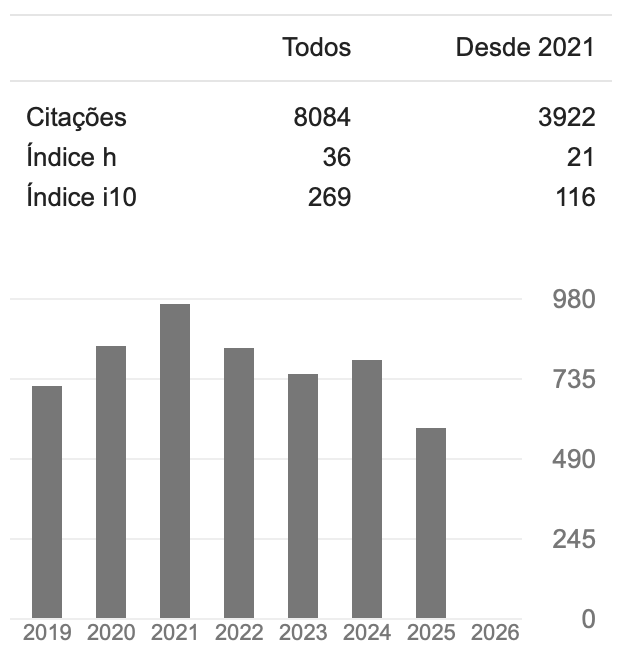Effects of dual-task exercises in elderly with Alzheimer´s Disease: a systemic review
DOI:
https://doi.org/10.17765/2176-9206.2019v12n1p197-202Keywords:
Motor activity, Cognition, Therapy by exercise.Abstract
A systemic review of current literature is undertaken to summarize the effects of dual-task intervention on the symptoms of Alzheimer´s Disease through databases PubMed, Scielo and Lilacs. Studies with elderly with Alzheiomer´s Disease treated by the dual-task exercises were also used. The four studies showed that interventions lasted between 4 and 12 months, with weekly frequency of two or three 60-min sessions. Sample greatness varied between 10 and 210 elderly people. One of the studies showed the dual task focused on functional exercise and the other two demonstrated the dual task exercise with aerobic, strength, resistance, equilibrium and motor coordination exercises. The fourth group used the dual task exercise alone. Studies have proved that the dual-task exercise may lessen and control motor and cognitive losses caused by the disease.Downloads
References
Veras RP, Oliveira M. Envelhecer no Brasil: a construção de um modelo de cuidado. Ciência & Saúde Coletiva. 2018; 23(6):1929-36.
Santos P, Leide C, Ozela PF, Brito MF, Pinheiro AA, Padilha EC, et al. Alzheimer’s disease: A review from the pathophysiology to diagnosis, new perspectives for pharmacological treatment. Current medicinal chemistry, 2018; 25(26):3141-59.
Huang CY, Chen YA, Hwang S Wu RM. Improving Dual-Task Control With a Posture-Second Strategy in Early-Stage Parkinson Disease. Archives of physical medicine and rehabilitation. Arch Phys Med Rehabil. 2018; 99(8):1540-46.
Whitfield JA, Goberman AM. Speech motor sequence learning: Effect of Parkinson disease and normal aging on dual-task performance. Journal of Speech, Language, and Hearing Research, 2017; 60 (6):1752-65.
Vergara-Diaz G, Osypiuk K, Hausdorff JM, Bonato P, Gow BJ, Miranda JG, et al. Tai Chi for Reducing Dual-task Gait Variability, a Potential Mediator of Fall Risk in Parkinson’s Disease: A Pilot Randomized Controlled Trial. Glob Adv Health Med. 2018; 17(7):1-12.
Öhman H, Savikko N, Strandberg TE, Kautiainen H, Raivio MM, Laakkonen M, et al. Effects of exercise on cognition: The Finnish Alzheimer disease exercise trial: a randomized, controlled trial. J Amer Geriatr Soc. 2016; 64(4):731-8.
Gaßner H, Marxreiter F, Steib S, Kohl Z, Schlachetzki J, Adler W, et al. Gait and cognition in Parkinson’s Disease: cognitive impairment is inadequately reflected by gait Performance during Dual Task. Front Neurol. 2017; 26(8):1-11.
Pitkälä KH, Pöyst MM, Laakkonen ML, Tilvis RS, Savikko N, Kautiainen H, et al. Effects of the Finnish Alzheimer disease exercise trial (FINALEX): a randomized controlled trial. JAMA. 2013; 173(10):894-901.
Fajersztajn L, Cordeiro RC, Andreoni S, Garcia JT. Effects of functional physical activity on the maintenance of motor function in Alzheimer’s disease. Dem Neuropsychol. 2008; 2(3):233-40.
Nascimento CMC, Teixeira CVL, Gobbi LTB, Gobbi S, Stella F. A controlled clinical trial on the effects of exercise on neuropsychiatric disorders and instrumental activities in women with Alzheimer’s disease. Braz J Phys Ther. 2012; 16(3):197-204.
Pedroso RV, Coelho FG, Santos-Galduróz RF, Costa JL, Gobbi S, Stella F. Balance, executive functions and falls in elderly with Alzheimer’s disease (AD): a longitudinal study. Arch Gerontol Geriatr. 2012; 54(2):348-51.
Antunes HK, Santos RF, Cassilhas R, Santos RVT, Bueno OFA, Mello MT. Exercício físico e função cognitiva: uma revisão. Rev Bras Med Esp. 2006; 12(2):108-14.
Zanini RS. Demência no idoso: aspectos neuropsicológicos. Rev Neuroc. 2010; 18(2):220-26.
Christofoletti G. Influência da dupla-tarefa no equilíbrio de pacientes com doença de Parkinson e demência do tipo Alzheimer [Tese de Doutorado]. São Paulo: Universidade Estadual de Campinas; 2010.
Melzer I, Tzedek I, Or M, Shvarth G, Nizri O, BenShitrit K, et al. Speed of voluntary stepping in chronic stroke survivors under single- and dual-task conditions: a case-control study. Arch Phys Med Rehabil. 2009; 90(6):927-33.
Mendel T, Barbosa WO, Sasaki AC. Dupla tarefa como estratégia terapêutica em fisioterapia neurofuncional: uma revisão da literatura. Acta fisiátrica, 2015; 22(4):206-11.
Fritz NE, Cheek FM, Nichols-Larsen DS. Motor-cognitive dual-task training in persons with neurologic disorders: a systematic review. J Neurol Phys Ther (2015) 39 (3): 142-53.
Alcock L, Galna B, Lord S, Rochester L. Characterisation of foot clearance during gait in people with early Parkinson’s disease: deficits associated with a dual task. J Biomech. 2016; 49 (13):2763-69.
Amboni M, Barone P, Hausdorff JM. Cognitive contributions to gait and falls: evidence and implications. Mov Disord (2013) 28(11):1520-33.
Downloads
Published
How to Cite
Issue
Section
License
A submissão de originais para a revista Saúde e Pesquisa implica na transferência da Carta Concessão de Direitos Autorais, pelos autores, dos direitos de publicação digital para a revista após serem informados do aceite de publicação.A Secretaria Editorial irá fornecer da um modelo de Carta de Concessão de Direitos Autorais, indicando o cumprimento integral de princípios éticos e legislação específica. Os direitos autorais dos artigos publicados nesta revista são de direito do autor, com direitos da revista sobre a primeira publicação. Os autores somente poderão utilizar os mesmos resultados em outras publicações, indicando claramente a revista Saúde e Pesquisa como o meio da publicação original. Em virtude de tratar-se de um periódico de acesso aberto, é permitido o uso gratuito dos artigos, principalmente em aplicações educacionais e científicas, desde que citada a fonte. A Saúde e Pesquisa adota a licença Creative Commons Attribution 4.0 International.
A revista se reserva o direito de efetuar, nos originais, alterações de ordem normativa, ortográfica e gramatical, com vistas a manter o padrão culto da língua e a credibilidade do veículo. Respeitará, no entanto, o estilo de escrever dos autores. Alterações, correções ou sugestões de ordem conceitual serão encaminhadas aos autores, quando necessário. Nesses casos, os artigos, depois de adequados, deverão ser submetidos a nova apreciação. As opiniões emitidas pelos autores dos artigos são de sua exclusiva responsabilidade.

















